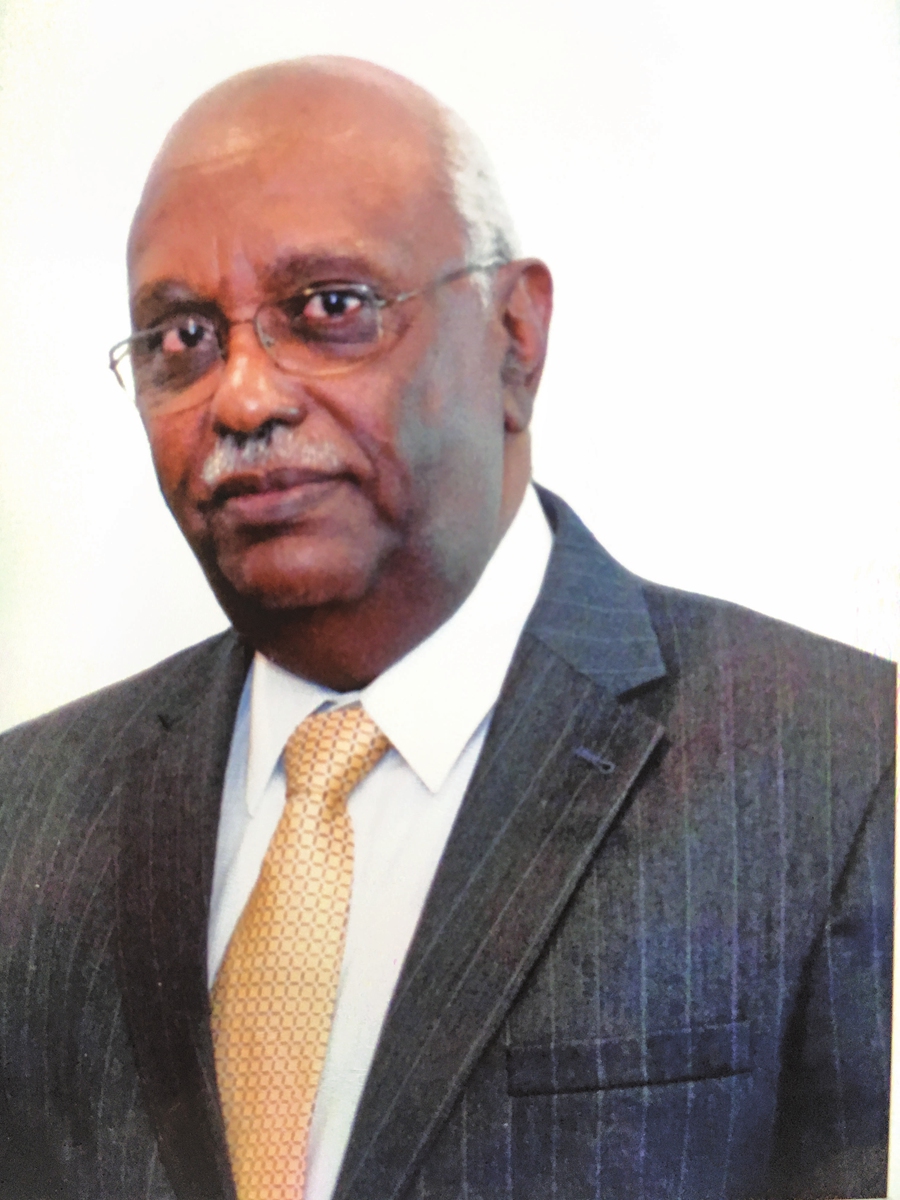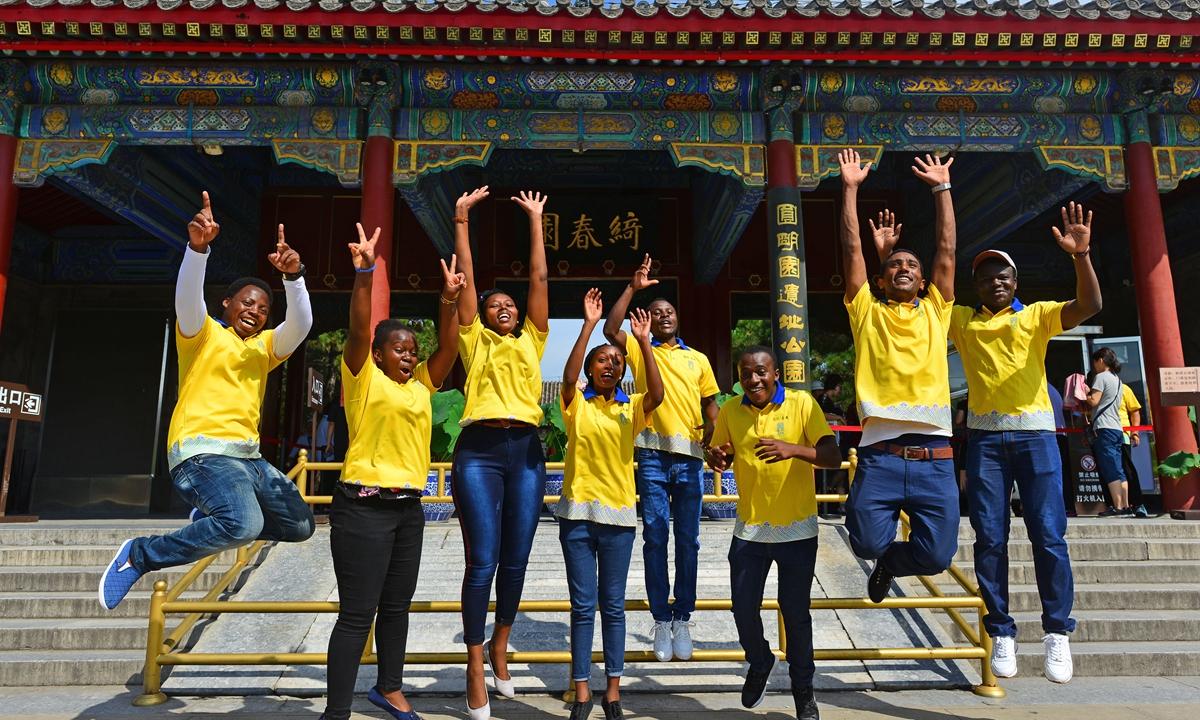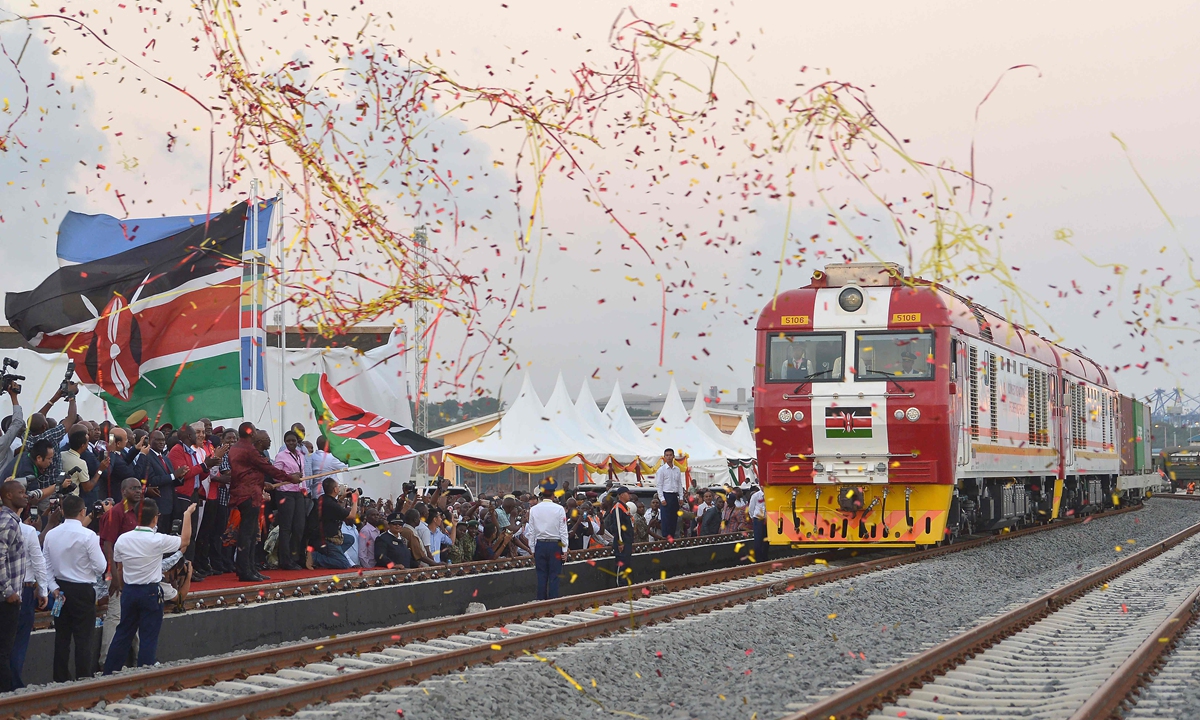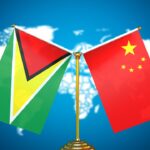Editor’s Note:
As the world grapples with unilateralism-induced crises that have threatened global peace, China continues to be a shining example on the international stage, injecting a stable, developmental, and cooperative momentum. Over the last decade, China, under the strong leadership of the Communist Party of China (CPC), has achieved great success. This month, CPC will hold its 20th National Congress, an important political event that draws worldwide attention. In this series, the Global Times will interview diplomats from various countries, who will share their views on China’s development and what it means for the world, as well as their expectations for the upcoming 20th CPC National Congress.
In exclusive interviews with Global Times reporter Hu Yuwei (GT), Rahamtalla M. Osman (Osman), the Permanent Representative of the African Union (AU) to China shared his expectations for the future of ties with China, and his understanding of the CPC’s endeavors in leading the Chinese people to prosperity.
GT: The 20th National Congress of the CPC is scheduled to start on October 16. This significant event will draw global attention since it will present the CPC’s roadmap for future development. What kinds of expectations do you have for the event?
Osman: The 20th National Congress of the CPC will have profound implications for China’s trajectory in the coming five to 10 years as the Party pursues its 2035 goals. In the African context, it is hoped that there will be continuity in China-Africa relations and whatever plans Chinese President Xi Jinping has put in place will continue and be fully executed.
In the last two decades, the China-Africa partnership has made vital footprints in the struggle for sustainable development and improved living conditions for people in Africa. In many areas, through the Belt and Road Initiative (BRI) and Forum on China-Africa Cooperation (FOCAC) commitments, this partnership has delivered concrete outcomes that are beneficial to both China and Africa, in areas including investment, trade, health, agriculture, energy, environment, education, culture, and people-to-people exchanges, among others.
In particular, 2021 was an important year for China-Africa relations, as it witnessed the holding of the 8th FOCAC meeting in Senegal, a significant and far-reaching event that took the win-win cooperation and common development between China and Africa to a higher level.
The 9th FOCAC which will be held in Beijing in 2024, together with all the African leaders, will help further deepen the relationship built from the previous ministerial engagements where China showed bolder and more targeted commitments to Africa’s development.

Rahamtalla M. Osman Photo: Courtesy of Osman
GT: How do you evaluate the achievements that China has realized over the last decade? What, in your opinion, was the most prominent contribution made by China on the international stage over the same period?
Osman: Development is the best way to evaluate China’s achievements over the last decade under the leadership of President Xi, and the BRI is a timeless example of this. By the end of 2021, there were 52 African countries that had joined the BRI. As the BRI is not limited to bilateral relations between China and African countries, but aims to connect Asia, Europe, and Africa, so too can African countries joining the BRI benefit from new connections and expand cooperation with countries along the Maritime Silk Road in South and Southeast Asia.
Africa, being part of the historical and natural extension of the Belt and Road, is an important participant in the BRI and the cooperation within that framework has generated more resources and expanded the market and space for African development. Africa and China agree on the need to form a strong synergy between the BRI and the AU Agenda 2063, as well as the development strategies of individual African countries. This is what African countries want – a race to the top, not a race to the bottom.
GT: What impressed you the most about CPC’s governance? Does it offer any governing lessons for the Africa Union?
Osman: As Africans – with a similar population and landmass over three times the size of China – we are interested in how China was able to deliver infrastructure, to transform its smallholder agricultural sector, to become an industrial powerhouse, to shift from being an importer to self-sufficient in pharmaceuticals, and so on. This is not a simple question of democracy, it is a question of how society is organized, and given the results we cannot leave out China in our considerations, while adapting them to our own societies.

African students join a volunteer team at Yuanmingyuan Park in Beijing in August 2018. Photo: VCG
GT: In mid-August, Chinese State Councilor and Foreign Minister Wang Yi said that China supports the AU in its quest to join the G20. How do you view China’s support to the AU for participating in more multilateral schemes? How can the cooperation between China and the AU contribute to world peace and stability?
Osman: We strongly welcome China’s endorsement of Africa’s position, which the current AU President Macky Sall has been promoting. At the time of its creation in 1999, both the African and European regions were among the largest 20 economies globally. But only the EU was invited to join the G20. This is an inconsistency which we are happy China and a few others are beginning to recognize. The African Union’s Agenda 2063 envisions Africa as the 3rd largest economy worldwide, and the world’s manufacturing hub.
We will only deliver this by making sure the G20 makes the right decisions at its table, with sufficient African representation. China is listening carefully to us and we are grateful. China can help us to encourage others to do the same.
GT: On September 9, 2022, President Xi exchanged congratulatory messages with rotating Chairperson of the African Union and President of Senegal Macky Sall on the 20th anniversary of the founding of the African Union and the 20th anniversary of the establishment of diplomatic relations between China and the African Union. How do you view the significance of such a celebration? What will be the most anticipated area for China-AU cooperation in the future?
Osman: This year marks 20 years since the AU’s founding in 2002 when it succeeded its predecessor, the Organization for African Unity, which had been established in 1963. Two major overarching global plans with potentially long-term ramifications for Africa’s development have been initiated in close proximity since the turn of the century – the launch of Agenda 2063 and the launch of the Forum on China-Africa Cooperation (FOCAC).
China has demonstrated commitment to directly support Africa’s existing development plans on the continental and regional levels. Overall, we hope we can build on the progress of the BRI and the outcomes of FOCAC 2021 to generate long-term, sustainable development to support the continent in attaining Agenda 2063.













